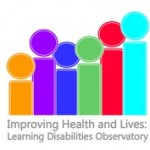
We have posted previously about issues relating to cancer screening in people with learning disabilities and the impact this has on early identification of signs and symptoms and consequent timely treatment. The researchers from the improving health and lives learning disabilities public health observatory (LDPHO) were interested to know whether reasonable adjustments were being made [read the full story…]







